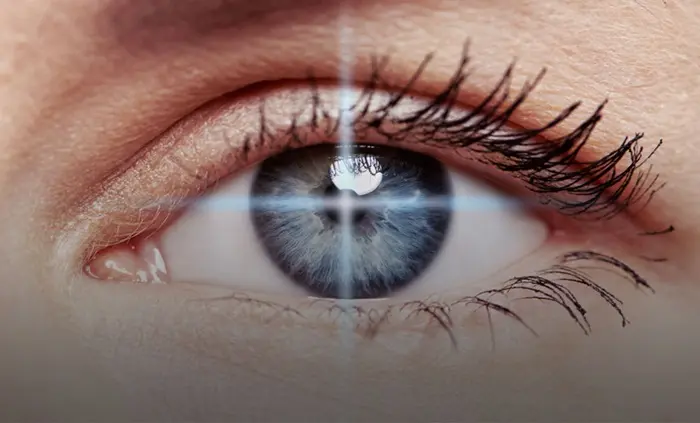Laser eye surgery has revolutionized the field of ophthalmology, providing a reliable and effective solution for vision correction. For individuals considering this procedure, a common question is: “How long does laser eye surgery last?” This article aims to provide a comprehensive, objective, and professional overview of the duration of laser eye surgery effects, the factors influencing its longevity, and considerations for patients.
Understanding Laser Eye Surgery
Laser eye surgery, also known as refractive surgery, encompasses several procedures designed to correct common vision problems such as myopia (nearsightedness), hyperopia (farsightedness), and astigmatism. The most prevalent types of laser eye surgery include LASIK (Laser-Assisted In Situ Keratomileusis), PRK (Photorefractive Keratectomy), and SMILE (Small Incision Lenticule Extraction).
LASIK
LASIK is the most widely performed laser eye surgery. It involves creating a thin flap in the cornea, reshaping the underlying corneal tissue with an excimer laser, and then repositioning the flap. This procedure is known for its quick recovery time and minimal discomfort.
PRK
PRK was the first type of laser eye surgery developed and is still used today, especially for patients with thinner corneas. In PRK, the outer layer of the cornea is removed entirely to expose the underlying tissue for reshaping. The corneal epithelium regenerates naturally post-surgery.
SMILE
SMILE is a newer procedure that uses a femtosecond laser to create a small lenticule in the cornea, which is then removed through a small incision. This method preserves more of the corneal structure and may result in fewer complications compared to LASIK and PRK.
See Also: What Problems May Occur During Laser Eye Surgery?
Longevity of Laser Eye Surgery
The results of laser eye surgery are generally long-lasting, but they are not necessarily permanent. The longevity of the surgery’s effects depends on various factors, including the patient’s age, the type of vision correction needed, and natural changes in the eye over time.
Initial Outcomes
Immediately after laser eye surgery, most patients experience a significant improvement in vision. The majority achieve 20/20 vision or better, eliminating the need for glasses or contact lenses for most daily activities.
Long-Term Stability
Studies have shown that the majority of patients maintain excellent vision for many years post-surgery. According to a review of multiple studies, approximately 95% of LASIK patients achieve 20/40 vision or better, which is sufficient for driving without corrective lenses, for up to ten years after the procedure.
Factors Affecting Longevity
Several factors can influence how long the results of laser eye surgery last:
Age
Younger patients tend to experience longer-lasting results because their eyes are generally more stable. However, patients who undergo surgery in their late 30s or older may still benefit significantly, although age-related changes such as presbyopia (age-related farsightedness) can eventually necessitate the use of reading glasses.
Refractive Stability
Patients with stable vision for at least a year before surgery are more likely to enjoy lasting results. Significant changes in prescription within a year prior to surgery can indicate underlying issues that may affect long-term outcomes.
Degree of Correction
Patients with higher degrees of myopia, hyperopia, or astigmatism may experience more regression over time. However, enhancements or touch-up procedures can often address these changes.
Eye Health
Underlying eye conditions, such as keratoconus or chronic dry eye, can impact the success and durability of laser eye surgery. Comprehensive pre-surgical evaluations help identify these conditions to ensure appropriate candidacy.
Potential for Regression
While laser eye surgery provides substantial and long-term vision correction, some patients may experience regression, where their vision gradually returns to its pre-surgery state. Regression is more common in patients with high refractive errors or those who undergo the procedure at a younger age.
Addressing Regression
For patients experiencing regression, additional corrective procedures, known as enhancements, can often restore vision to its post-surgery levels. Enhancements involve reapplying the laser to the cornea and are typically less complex than the initial surgery.
Presbyopia and Aging
Presbyopia, the age-related loss of near vision, affects nearly everyone over the age of 40. Laser eye surgery does not prevent presbyopia, which occurs due to the natural stiffening of the lens inside the eye. As a result, even patients with excellent distance vision post-surgery may require reading glasses as they age.
Post-Surgery Care and Follow-Up
Proper post-surgical care and regular follow-up appointments are crucial for maintaining the results of laser eye surgery. Adhering to the prescribed eye drop regimen, protecting the eyes from UV exposure, and attending all scheduled check-ups help ensure optimal healing and long-term vision stability.
Immediate Post-Surgery Care
Patients should follow their surgeon’s instructions closely, which typically include:
Using prescribed antibiotic and anti-inflammatory eye drops
Avoiding rubbing the eyes
Wearing protective eyewear to shield the eyes from bright light and potential trauma
Long-Term Follow-Up
Regular eye exams are essential for monitoring vision changes and eye health. Most surgeons recommend annual check-ups to detect any early signs of regression or other issues that may require intervention.
Conclusion
Laser eye surgery offers a significant and lasting improvement in vision for the majority of patients. While the effects are not necessarily permanent, with proper care and occasional enhancements, most individuals enjoy many years of clear vision free from glasses or contact lenses. Understanding the factors that influence the longevity of laser eye surgery helps patients set realistic expectations and make informed decisions about their vision correction options.
Related topics:

